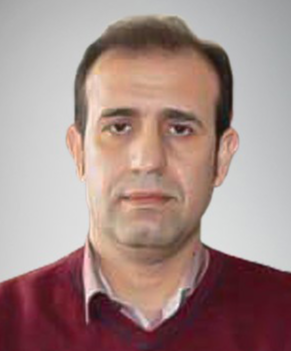
Anayasa Mahkemesi Başkanı’nın konuşması: Anladığı dilden
Anayasa mahkemesi başkanı Kadir Özkaya, mahkeme üyeliğine yeni seçilen Metin Kıratlı’nın and içme töreninde yaptığı konuşmada üç öneli noktayı vurguladı.
İlki, yargının bağımsızlığı ve tarafsızlığıydı. Özkaya, adaletin tesisi, bireylerin hak ve özgürlüklerinin korunması için yargının bağımsız ve tarafsız olması gerektiğini, bunun ise ancak bağımsız ve tarafsız hâkimlerle sağlanabileceğini ifade etti ve yargı mensuplarından her koşul ve şart altında adaletle hükmetmelerini istedi. Zira adalet terazisinin bozulması durumunda, toplumda kargaşa ve huzursuzluğun baş göstermesi kaçınılmaz olacaktı.
İkincisi, bireysel başvurunun taşıdığı önemdi. Bireysel başvuru, gerçekten, Türkiye’nin hukuk tarihinin en önemli adımlarından biridir. Özkaya, bu mekanizmanın bir taraftan hak ve özgürlüklere ilişkin ölçütleri belirleme, koruma ve geliştirme yönünde çok müspet bir rol oynadığını belirtti. Diğer taraftan da, bireysel başvuru hakkının kabulüyle birlikte, gerek Türkiye aleyhine AİHM’ne yapılan başvuruların ve gerek AİHM tarafından Türkiye aleyhine verilen ihlal kararlarının sayısının önemli miktarda düştüğünü söyledi.
Özkaya, bireysel başvurunun toplum nezdinde genel bir kabul gördüğüne de değindi. Dolayısıyla hem toplumsal kabule mazhar olan ve hem de bireylerin temel haklara ilişkin sorunlarının çözülmesinde etkin bir araç işlevi gören bu yolun mutlak korunması gerektiğine dikkat çekti.
Üçüncüsü de, yargı makamlarının kendisinin Anayasaya ve kanunlara uygun hareket etmeleri mecburiyetiydi. Özkaya’ya göre, her bir yüksek mahkemenin görev ve yetki alanı, kararlarının nitelikleri ve işleyiş biçimleri Anayasa ve kanunlarda açıkça düzenlenmiştir. Mahkemeler arasında bir konuya ilişkin görüş farklılıkları olabilir ama her mahkeme hukuken bağlı olduğu kurallara riayet etmek zorundadır. Aksi takdirde, bir hukuk düzeninden ve hukuki güvenlikten söz edilemez.
Mahkemeler eliyle yaratılan hukuksuzluk
Özkaya, bu üç noktayı öne çıkarırken iki kez Kuran-ı Kerim’e atıf yaptı. Böylece konuşmanın muhtevasından ziyade, AYM Başkanının görüşlerini Kuran-ı Kerim’deki ayetlerle temellendirme gayreti öne çıktı. Haber siteleri bunu manşet yaptı. Bazı kesimler buna tepki gösterdi. Laik bir devlette bir mahkeme başkanının, bir din adamı gibi, kutsal kitaptan alıntılar yaparak konuşamayacağı ve bu tavırla hukuk devleti olunamayacağı belirtildi.
Kanımca, Özkaya’nın Kuran-ı Kerim’den alıntılar yapması laikliğe halel getirmez. Bir mahkeme başkanı fikrini daha iyi ifade etmek için filozoflara da, din adamlarına da, kutsal kitaplara da, din dışı metinlere de başvurabilir. Bunda bir beis yok. Mühim olan, konuşmanın içeriği ve somut koşullarda nereye oturduğudur.
Özkaya’nın konuşması, bu bağlamda, Türkiye’de hukuk sahasında mevcut olmayanları göstermesi açısından önem taşır. Şöyle ki; adaletin sağlanması ve bireylerin hak ve özgürlüklerinin güvence altına alması için Özkaya üç şarttan bahsetti: Yargı bağımsız ve tarafsız olmalı, bireysel başvuruların etkinliği korunmalı ve yargı makamları hukuk dairesinin içinde kalmalı.
Oysa bugün Türkiye’de bu üç şartı mumla da arasanız bulamazsınız. Yargı bağımsız ve tarafsız değil. Sağır sultan da bunu biliyor. Bireysel başvuruların etkinliği giderek azalıyor. Çünkü derece ve temyiz mahkemelerinin AYM’yi tanımayan kararları artıyor ve AYM etkin bir hak arama mercii olma vasfını kaybediyor.
Keza Anayasanın yoruma ihtiyaç duymayacak kadar açık maddelerine rağmen mahkemeler hukuki sınırları ihlal ediyor ve göz göre göre hukuk dışına çıkıyorlar. Mesela Anayasa m. 90’a rağmen AİHM’nin (Kavala, Demirtaş ve Yalçınkaya kararları) ve m. 153’e rağmen AYM’nin (Atalay kararı) kararlarına uymuyorlar. Mahkemeler eliyle yaratılan hukuksuzluğun büyüklüğünü gözler önüne seren ve AYM’nin tarihinde ilk defa vermiş olduğu yokluk kararı bile, hukuk tanımazları yola getirmeye yetmiyor.
Odaklanılması gereken husus budur. Özkaya adaletin temini için olmazsa olmaz koşulları sıralarken, aslında bunların hali hazırda olmadığı gerçeğine ışık tutmuştur.
Ayrıca Özkaya’nın bu konuşmasını Cumhurbaşkanı Erdoğan ve yüksek mahkeme üyelerinin huzurunda yaptığının da altını çizmek gerekir. Kim bilir, Kuran-ı Kerim’den getirilen referanslar, belki de, muhataplarıyla “anladıkları dilden” konuşmak gerektiği düşüncesinin bir neticesidir.
